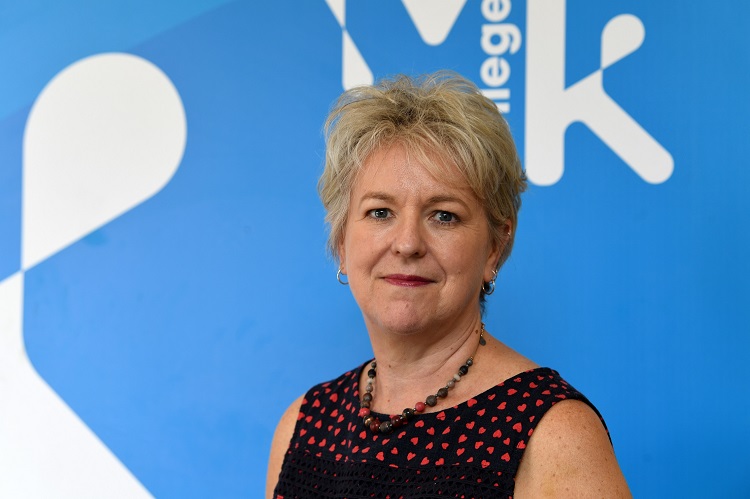Prison Educators deserve our gratitude

Commentary should recognise extraordinary contribution of Prison Educators
The commentary from Ofsted and the Prisons’ Inspectorate (HMIP) on the state of Prison Education is an interesting reflection; there is much to agree with in the document released a few days ago by the Chief Inspectors of both organisations, Amanda Spielman and Charlie Taylor. However, the first chapter of any report should be dedicated to the Prison Educators who have performed astonishingly well during the Pandemic and who have enabled some form of Education to continue within the prison estate in the most difficult of circumstances.
The biggest problem, as they rightly state, has been access.
Classroom teaching was not possible in the first year of the Pandemic, as attempts were made to limit the spread of COVID. The process of introducing remote learning was far more challenging in prisons than in schools, colleges and universities in the outside world, due to the lack of digital access across the prison estate. In recent months, face-to-face teaching has started to return, with teachers supporting small groups, or learners on a one-to-one basis on their residential units, but the lack of classroom provision has impacted lower-level learners and those with special educational needs to the greatest degree. However, when the authors say, “the overall quality of prison education remains extremely poor,” this fails to recognise the extraordinary efforts of Prison Educators to support learning in the most challenging of situations.
Everyone in Prison Education has had to make the leap from being classroom teachers to experts in distance learning
Everyone in Prison Education has had to make the leap from being classroom teachers to experts in distance learning – and we have all found that’s a very different skill. Add to that the layer of complexity involved in terms of being a student in prison with all the strictures and limitations that entails and it’s hard to imagine a more challenging setting for teaching and learning to be successful. However, the feedback from prisoners to Milton Keynes College staff has been hearteningly positive. Our learners say they really appreciate what has been done for them while desperately wishing it could have been carried out face-to-face. The commentary’s authors are right when they say that in some instances there have been considerable delays where paper-based teaching packs have been issued – delays in the packs reaching the prisoners and in being returned for assessment – but this is a reflection of the challenges of prison regimes within a COVID setting. And from the more than 4000 learners who we have engaged with during the pandemic, 9 out of 10 are happy with the provision we have offered.
What this does illustrate is the pressing need to update digital accessibility in our prisons. While government was busily distributing laptops and internet dongles to students across our communities, within custody this was not possible. We desperately need to provide a digital infrastructure across each establishment, not just within education classrooms, in order to meet the expectations and ambition of Ofsted and HMIP.
Prison Education was bound to suffer during the COVID crisis
Prison Education was bound to suffer during the COVID crisis. When things get difficult it’s understandable that education isn’t always seen as a core component of each day, especially when keeping prisoners safe and infection under control is of course the highest priority. But there is now a variation across prisons in terms of access to our learners and as the commentary suggests, it may be time to take another look at this.
The quality of teaching and learning in prisons is measured under a system used by Ofsted call the Education Inspection Framework (EIF) and we have not been able to meet all of those standards through a pure paper-based, distance learning approach. However, the EIF wasn’t designed to quantify success during a pandemic and within a digital vacuum, and so it is harsh to use this currently to make judgements on the quality of provision.
Interestingly there have been some positive side-effects in unexpected areas
Interestingly there have been some positive side-effects in unexpected areas. There is always a cohort of hard-to-reach learners across all prisons who will not engage in more traditional classroom provision, and some of those individuals have found distance learning more convenient, able to as they are to take part on their own terms and in their own time.
Another interesting example of a good outcome resulting from a challenging situation can be seen at HMP Frankland. With a growing number of older prisoners there have been numerous requests in recent years for opportunities to learn sign language. During the lock down period, an in-cell learning package was created with two individual packs – An Introduction to Deaf Awareness and An Introduction to Basic Sign Language. These were well received, including by prisoners who had never engaged with education previously. The course was developed further for delivery through a blended approach, whereby we were able to tutor learners face-to-face on their residential wings as we started small group teaching in classrooms.
Learners have fed back how engaging, relevant and interesting the course was and are keen to take the skills developed back onto their residential wings and their places of work to highlight awareness with their peers or to support individuals with a hearing impairment. This course is now being used by prisoner mentors helping their peers, and we are looking to offer an accredited version in the future. So, while a return to the classroom is key, it is vital to use those lessons learned during the Pandemic, to maintain and develop the lessons we have learned.
It has not been possible for learners to sit qualifications in their cells
Ofsted/HMIP comment that much of the learning which has been provided during the pandemic hasn’t been accredited. This is largely because it has not been possible for learners to sit qualifications in their cells, in accordance with Awarding Organisation rules. However, that doesn’t mean that time spent learning has been wasted. As we now start to access learners in small groups, we are preparing and supporting them to complete the examinations linked to their learning packs, so they can get the qualifications they deserve.
Everything which has been achieved during this unprecedented time is testament to the incredible commitment, skill and tenacity of the staff who have been determined to make sure that education would continue in some form regardless of the difficulty. We have heard much about the contribution of nurses, doctors, supermarket staff and delivery drivers to keeping society functioning. Prison Educators are somewhat less visible than any of these groups, but they’ve worked tirelessly, shown huge passion and diligence, and are equally as deserving of high praise.
Sally Alexander, Principal, MK College Group with responsibility for Prison Education











Responses